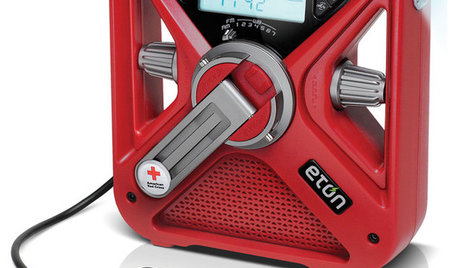Possible Hyper-T Cat Again after 2 Radiations!
Rudebekia
13 years ago
Related Stories

BUDGET DECORATING12 Ways to Make Your Home Feel New Again
Treat your furniture, walls, floors and countertops to some TLC, to give them a just-bought look for a fraction of the cost
Full Story
LIFELate Again? Eliminate the Things Holding You Up in the Morning
If you find yourself constantly running late for appointments, work and get-togethers, these tips could help
Full Story
REMODELING GUIDES11 Reasons to Love Wall-to-Wall Carpeting Again
Is it time to kick the hard stuff? Your feet, wallet and downstairs neighbors may be nodding
Full Story
DECORATING GUIDESHouzz Call: What Home Collections Help You Feel Like a Kid Again?
Whether candy dispensers bring back sweet memories or toys take you back to childhood, we'd like to see your youthful collections
Full Story
BEFORE AND AFTERSBefore and After: 19 Dramatic Bathroom Makeovers
See what's possible with these examples of bathroom remodels that wow
Full Story
HOUZZ TOURSMy Houzz: Renovated 1912 Farmhouse Radiates Warmth and Charm
A Russian fireplace anchors a Washington family home filled with inherited, salvaged and flea market pieces
Full Story
PETSSo You Want to Get a Cat
If you're a cat lover, the joys outweigh any other issue. If you haven't lived with one yet, here are a few things to know
Full Story
HOME TECH7 Ways to Charge Up and Connect After Disaster
Products and tips for communicating and keeping essential items running till the power's back on
Full Story
MOST POPULAR9 Real Ways You Can Help After a House Fire
Suggestions from someone who lost her home to fire — and experienced the staggering generosity of community
Full Story
GARDENING AND LANDSCAPING10 Outdoor Room Ideas That Radiate Style
Accent color, accessories and plenty of comfy cushions enhance these open-air retreats
Full StoryMore Discussions









PetNanny13
Anne_Marie_Alb
Related Professionals
Royal Palm Beach Architects & Building Designers · Atlanta Furniture & Accessories · Golden Glades Furniture & Accessories · Pleasant Grove Furniture & Accessories · Potomac Furniture & Accessories · Ballwin Flooring Contractors · Fargo Flooring Contractors · Greenville Flooring Contractors · Lake Elsinore Flooring Contractors · Lake Nona Flooring Contractors · Norwalk Flooring Contractors · Ocoee Flooring Contractors · South Peabody Flooring Contractors · Virginia Beach Flooring Contractors · Wyomissing Flooring Contractorsannzgw
laurief_gw
quasifish
laurief_gw
Meghane
lzrddr
renee_fl
Meghane
RudebekiaOriginal Author
alan_s_thefirst
quasifish